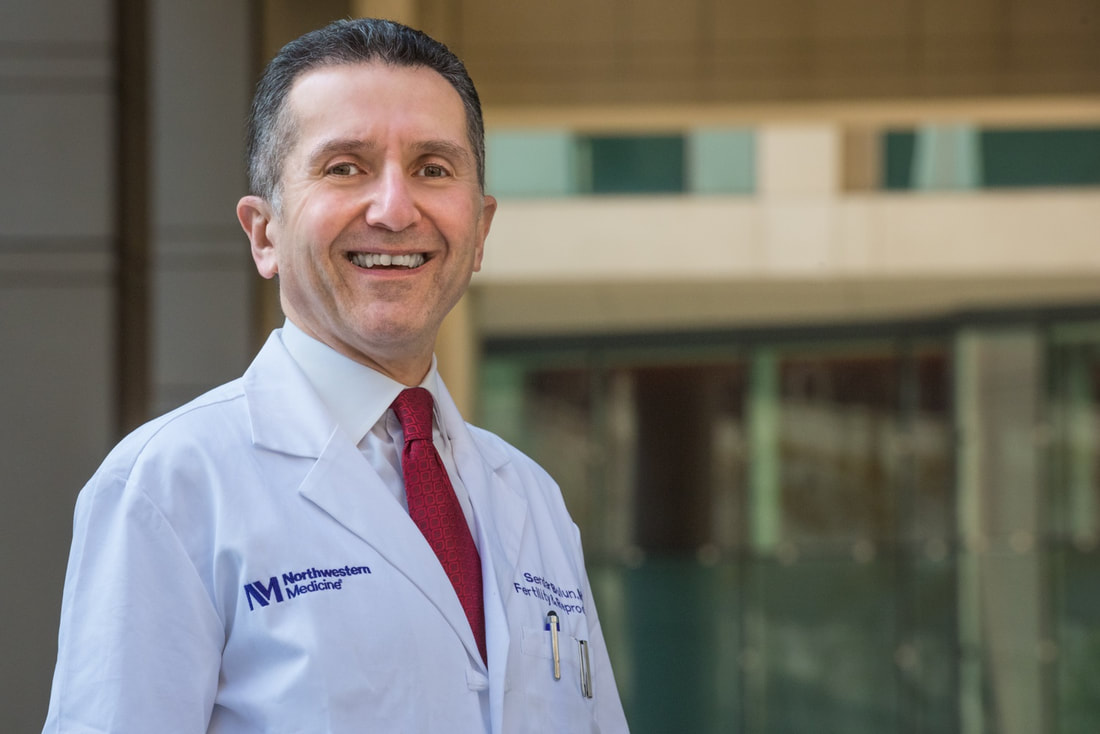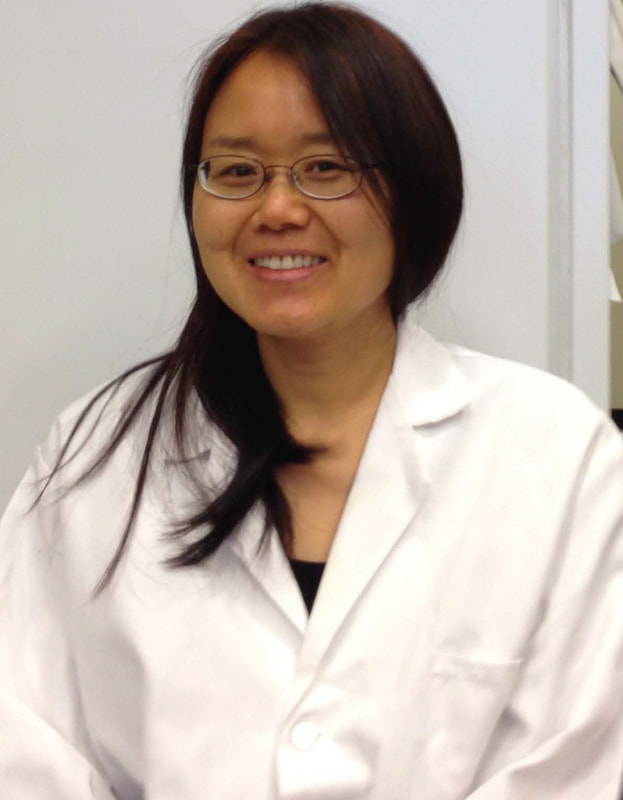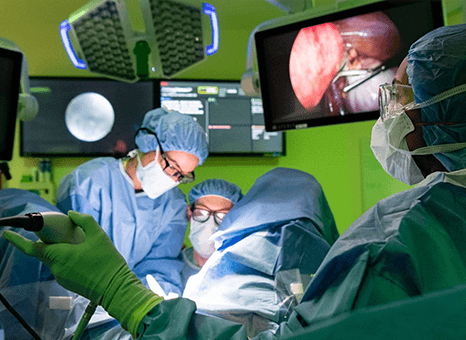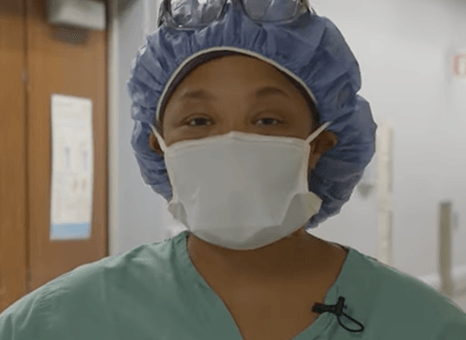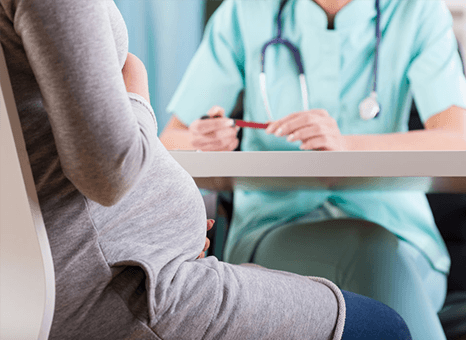|
September 2023 STUDY IDENTIFIES NOVEL CELLULAR MECHANISMS PROMOTING GROWTH OF UTERINE FIBROIDSFeaturing: Serdar Bulun, MD, Ping Yin, MD, PhD
Investigators have discovered a novel molecular pathway that promotes tumor growth in uterine fibroids that contain a specific genetic mutation, which could inform the development of new targeted therapies, according to a Northwestern Medicine study published in the journal JCI Insight. Uterine leiomyomas, or fibroids, effect approximately 10 million reproductive-age women and individuals with uteruses in the U.S. each year. It is estimated that up to 80 percent of these individuals will develop at least one fibroid by the age of 50. Additionally, one-third of these individuals will develop severe symptoms, including heavy and irregular uterine bleeding, anemia, pregnancy loss or infertility. Furthermore, symptomatic uterine fibroids disproportionally affect Black women compared to other racial and ethnic populations. “They [leiomyomas]are probably the most important public health problem of reproductive-age women across the world, and in the U.S., they’re fairly common,” said Serdar Bulun, MD, the chair and John J. Sciarra Professor of Obstetrics and Gynecology and co-senior author of the study. “Black women also develop symptomatic fibroids about 10 years earlier than white women, and the statistics show that fibroids are detected three or four times more commonly in Black women compared with white or non-Black women.” There are no long-term therapies currently available for uterine fibroids due to a severe lack of research exploring the underlying mechanisms of uterine fibroid tumor growth, according to Bulun. Work published in the last two decades established that the MED12 gene was mutated in 70 percent of uterine fibroid tumors and when MED12 is mutated, the tumors rely on progesterone to grow. This discovery prompted Bulun’s team to determine how the MED12 mutation catalyzes cell proliferation in uterine leiomyoma cells. In the current study, the investigators used RNA sequencing to study both normal and mutant-MED12 leiomyoma cells. Using these techniques, they discovered that the TDO2 (tryptophan 2,3-dioxygenase) gene was upregulated in mutant-MED12 leiomyoma cells. In these cells, TDO2 initiates the conversion of the amino acid tryptophan into an internal hormone called kynurenine, which is attached to and in turn activates a transcription factor called aryl hydrocarbon receptor (AHR). When AHR is activated, it signals leiomyoma cells to grow and proliferate. To further confirm their findings, the investigators activated this newly discovered TDO2-kynurenine-AHR pathway in mutant-MED12 leiomyoma cells with tryptophan or kynurenine which, in turn, promoted cell proliferation and inhibited apoptosis, or cell death. This suggests that activating the TDO2-kynurenine-AHR pathway could inform the development of new long-term targeted therapies, according to the authors. “This [TDO2] is a very important enzyme because 70 percent of people who have uterine fibroids have this mutation, and if we can find the compound to inhibit the activity of the enzyme, I believe we’ll be able to decrease the symptoms of fibroids or shrink fibroid size,” said Ping Yin, MD, PhD, research associate professor of Obstetrics and Gynecology in the Division of Reproductive Science in Medicine, who was co-senior author of the study. The findings also highlight the importance of uterine fibroid research, which can help accelerate new precision medicine treatments for a disease that effects nearly all women, Bulun said. “This is one of the only programs which brings a lot of investigators in a multidisciplinary fashion to study fibroids and look for molecular targets so that we could help women with this disease,” Bulun said. Co-authors include Ariel Dotts, a student in the Driskill Graduate Program in Life Sciences (DGP), and Debabrata Chakravarti, PhD, the Anna Lapham Professor of Obstetrics and Gynecology and the Vice Chair for Translational Research in the Department of Obstetrics and Gynecology. Bulun and Chakravarti are members of the Robert H. Lurie Comprehensive Cancer Center of Northwestern University. This article was originally published in the Northwestern University Feinberg School of Medicine News Center on September 19, 2023. |
Serdar Bulun, MD, chair and the John J. Sciarra Professor of Obstetrics and Gynecology, was co-senior author of the study published in JCI Insight.
Ping Yin, MD, PhD, research associate professor of Obstetrics and Gynecology in the Division of Reproductive Science in Medicine, was co-senior author of the study.
Refer a PatientNorthwestern Medicine welcomes the opportunity to collaborate with you in caring for your patients.
|
You May Also Like
|
December 2022 |
December 2022 |


